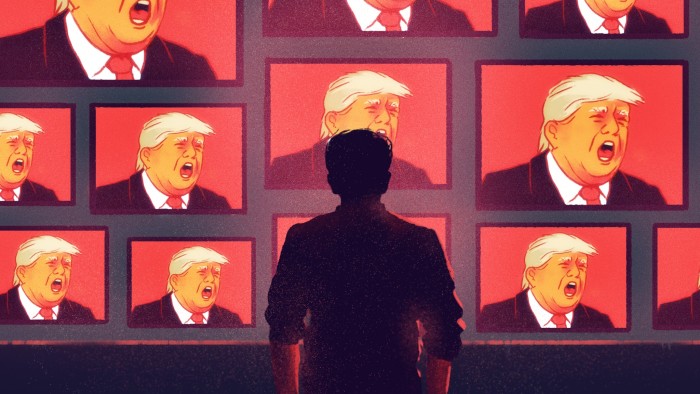Unlock the White House Watch newsletter for free
Your guide to what Trump’s second term means for Washington, business and the world
In 1929, two French historians founded a journal called Annales d’Histoire Économique et Sociale and began writing a new kind of history. Their predecessors had chronicled the doings of kings and presidents: wars, treaties and personality clashes. Annales historians dismissed most of that as trivial “events”, mere “headlines of the past”. The Annales’ star Fernand Braudel wrote: “Events are the ephemera of history; they pass across its stage like fireflies, hardly glimpsed before they settle back into darkness.”
The Annales school focused on the long term: lasting forces such as a region’s climate, geography, its mentalité or social and economic trends. These were the factors that shaped human existence.
The tension between long and short-term has always remained. But in our time it seems to have become unprecedentedly acute, with the slow-burn climate crisis overshadowed by Donald Trump’s daily show. To make sense of our era, we need to think like Annales historians.
Braudel wrote that history operated on three levels of time. There was “geographical time”, meaning the relationship of humans to their environment; “social time”, meaning economic, demographic and cultural cycles; and “individual time”, or short-term events. But Trump operates on a fourth level of time: the daily news cycle.
He’s the master of our century’s two most successful innovations in entertainment: first reality TV, then social media. His administration is structured like a reality series. This isn’t a metaphor. Although Trump abandoned the collapsing TV industry for politics, he still thinks like a reality performer. Reality TV perches in the zone that he naturally inhabits, between fiction and nonfiction. His show is structured around a main character who exists in a state of nonstop conflict with countless enemies, many of whom are former associates. He regularly introduces new characters, typically chosen for their entertainment value, TV experience and/or looks. Picking Elon Musk to co-star in the recent series was inspired casting. No wonder Joe Biden’s low-energy show was discontinued.
Every day, the world tunes in to see which character has been humiliated, threatened or thrown off the island. Trump’s posts provide the commentary. Episodes end with the kinds of cliffhangers essential to reality TV: Will he dump Vladimir Putin “in two weeks”? Will he reinstate tariffs after his “90-day pause”? Will he make up with Elon? Will he strike Iran?
Trump rarely allows viewers time to think. In reality TV, the moment you stop entertaining, the audience switches off. With our attention spans fried, it’s hard to know which storylines are consequential. Probably even Trump isn’t sure. Was his dressing-down of Volodymyr Zelenskyy in the Oval Office just “great television”, as he called it, or did it signify the abandonment of Ukraine? Was the National Guard’s Battle of Los Angeles just a mini-action movie or a calculated step towards authoritarian control?
Sometimes an ostensibly meaningless episode conveys a deeper truth: when Trump threatened to annex Canada, the message was that if the US could turn on its friendliest friend, then every alliance was dispensable. The deaths of more than 300,000 people worldwide so far (as estimated by Brooke Nichols of Boston University), killed by Trump’s slashing of American aid, are plainly momentous, yet have happened off-screen as both Trump and most viewers seem to consider them insufficiently entertaining.
It’s only human that we’re gripped by Trump’s spectacle. Similarly, Braudel wrote that the contemporaries of King Philip II of Spain “felt, rightly or wrongly, that they were participating in a mighty drama which they regarded above all as one personal to them. Possibly, probably even, they were under an illusion. But this illusion, this feeling of being an eye-witness of a universal spectacle, helped to give meaning to their lives.”
Still, we should be aware that we’re under an illusion. We need to drag our eyes away from Trump and ask, as Annales historians would, “What is happening that is consequential?” They introduced climate into historiography. Climate change, too impersonal a story for most viewers, would have fascinated them. So would the advent of artificial intelligence and the collapsing birth rates that mean China, Japan and much of eastern Europe are projected to lose population by 2100 on a scale unseen since Europe’s 14th-century Black Death.
By contrast, I doubt the Annales lot would have wasted much time on Trump’s show. There is, wrote Braudel, “a miscellany of trivia and daily happenings which rises like a cloud of dust from any living civilisation.”
Email Simon at [email protected]
Find out about our latest stories first — follow FT Weekend Magazine on X and FT Weekend on Instagram
